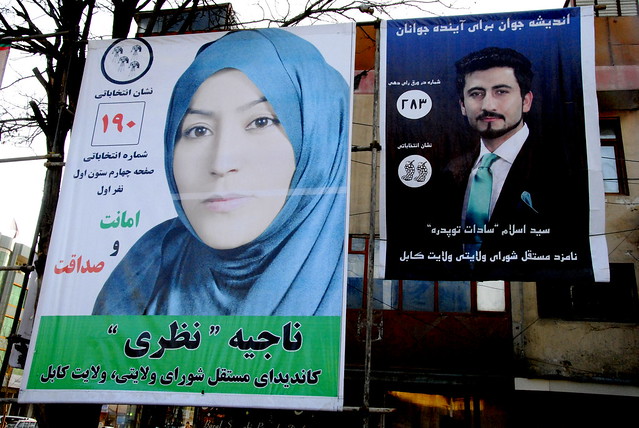By Mohammad Reyaz,
More than terror strikes, the impeding withdrawal of NATO forces or foreign aid, Afghans are most worried about the peaceful transition of power.
Afghanistan will go to the polls on Saturday, April 5, to elect a president to succeed Hamid Karzai, who has governed the country since the fall of the Taliban in 2001, but cannot contest for a third consecutive term, as per the rules of the Afghan Constitution.

According to UNDP report, approximately 68 percent of the Afghan population is under the age of 25, and they are expected to play a major role in determining the results of this year’s presidential and provincial councils elections. A large number of youth and women are participating as candidates in provincial councils election.
The country appears all geared up for the presidential election, amidst repeated terror attacks by the Taliban, which is using all its power to destabilise the electoral process.
The capital Kabul and all the electoral machinery seem to be the Taliban’s prime target, clearly aimed at creating panic among voters to keep them away from voting. The Taliban seem to be considerably successful, as schools, colleges and most offices, particularly the internationals NGOs (INGOs) have shut offices, and most foreign workers, including several election observers, have left the country. Kabul has turned into virtual army cantonment, and residents have been advised to stay indoors as much as possible.
In the past ten days in Kabul, the Taliban have attacked the Serena Hotel, the main office and a provincial office of the Independent Election Commission (IEC), and a guest house, killing scores. On Wednesday, a suicide attack at the Interior Ministry killed at least six security personnel and injured four others. Rumours that hundreds of Taliban have entered Kabul and readying for an attack are further aggravating the situation.
However, that has not deterred the Afghans, who are tired of decades of conflict and are happy with the new form of democracy with all its shortcomings. From young to old, everyone is eagerly anticipating the polls. On Tuesday, one of the front-runners in the presidential election, Ashraf Ghani Ahmadzai, held a campaign rally at the famous football stadium in Kabul, which drew huge crowds despite the fear of a terrorist attack.
Kabul resident Pashtun Karim, a 55-year-old widow, says she will definitely vote. Her daughter, Freshta, 21, will get to vote for the first time and is excited as well. As a young woman working with an INGO, she is worried about negotiations and the prospect of compromising with the Taliban, and hence wants to use her vote judiciously for a peaceful transition.
The government is trying everything it can to make sure that the election is held peacefully. The Defence Ministry announced on Wednesday that about 195,000 Afghan National Police (ANP), National Directorate of Security (NDS) and Afghan National Army (ANA) forces would be deployed for the elections.
More than terror strikes, the impeding withdrawal of NATO forces or foreign aid, what common Afghans are worried about the most is the peaceful transition of power – if that happens at all. Though optimistic about a brighter future, Shafeek Seddiq, the president of the Afghanistan Justice Organisation, says, “One of the key factors that may endanger the process towards brighter future is not as much the NATO withdrawal, the grants, funds and donors, but a peaceful transition of power, and acceptance of whoever wins, that will be key to bringing peaceful transition, progress and continuing development.”
In fact, in his final campaign speech presidential hopeful Ashraf Ghani thanked incumbent President Hamid Karzai for his willingness to hand over presidency in accordance with the Afghan Constitution for the first time ever in Afghanistan’s history.
Meanwhile, the IEC has reaffirmed its commitment of holding free and fair elections. “The Election Commission will honour its promise to the nation and ensure impartiality in the elections,” IEC Chairman Ahmad Yusuf Nuristani said on Wednesday.
Mohammad Reyaz is a Delhi based Journalist, currently in Afghanistan. He tweets at @journalistreyaz.
[ Courtesy : DNA ]
Related:
